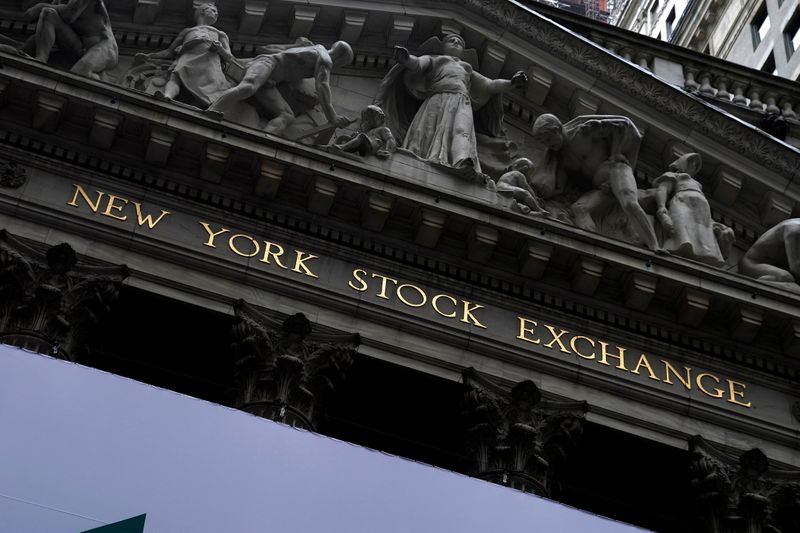By Geoffrey Smith
Investing.com -- The U.S. and China trade barbs at their first face-to-face meeting of the year. The Bank of Japan starts to dial down its hyper-aggressive monetary stimulus, while Russia becomes the third big emerging economy to raise interest rates this week. The EU's new Covid-19 wave is mounting, as Paris heads back into lockdown, while Nike (NYSE:NKE) becomes the latest company to be hit by supply chain problems. Here's what you need to know in financial markets on Friday, March 19th.
1. U.S.-China talks start badly
The first face-to-fact talks between the U.S. and China since President Joe Biden took office got off to a bad start in Alaska, with Chinese delegates lambasting the U.S. for everything from institutional racism to trade tariffs and cyberespionage.
U.S. Secretary of State Anthony Blinken responded by accusing China of undermining the rules-based world order with its actions toward Hong Kong and Taiwan, and its treatment of Muslim Uighurs in its Xinjiang province. One of the first actions of the Biden administration was to accuse China of genocide in Xinjiang.
The poor tone of the talks contributed to – but was not the only factor – in another sharp drop in Chinese equity markets on Friday, with the A-shares index losing over 3% and the CSI 300 and Chinext Price indexes both losing 2.8%.
2. Bank of Japan edges away from stimulus, while Russia hikes
The Bank of Japan signaled that it’s losing faith in its decades-long efforts to stave off deflation with asset purchases. The central bank abandoned its pledge to buy 60 trillion yen worth of equities this year, saying it would adopt other policies to ensure that bank profitability isn’t hurt too much by its negative interest rate policy.
The BoJ also said it would allow long-term bond yields to fluctuate by 25 basis points, having previously guided the market to assume a band of 20 basis points. That was interpreted as a modest tightening of policy, although Governor Haruhiko Kuroda played down such suggestions.
As such, the BoJ was the only advanced economy central bank to change its stance in a busy week for monetary policy meetings. By contrast, the Central Bank of Russia became the third big emerging central bank to produce a hawkish surprise this week (after Brazil and Turkey), raising its key rate 25 basis points to 4.50%.
3. Stocks set to bounce at open; Nike hit by supply chain issues
U.S. stock markets are set to open slightly higher later, but only the cyclicals-heavy Dow Jones is on course to end the week in positive territory after Thursday’s slump.
By 6:30 AM ET (1030 GMT), Dow Jones Futures contract was up 24 points, or 0.1%, while the S&P 500 Futures contract was up 0.2% and the NASDAQ Futures contract was up 0.5%.
The market is bracing for some heightened volatility ahead of the expiry at the end of the day of March futures and options contracts on the various indexes and individual stocks.
Also in focus later will be Nike, which became the latest company to warn of supply chain issues affecting its business, after missing revenue expectations for the three months through February. It blamed a global shortage of shipping containers and congestion at U.S. ports. Nike (NYSE:NKE) stock was down 2.8% in premarket trading.
4. Europe’s Covid-19 cases surge again as EU lifts AstraZeneca (NASDAQ:AZN) vaccine suspension
France put eight of its regions – including those around Paris and Nice – back into a stricter lockdown for a month, while Germany registered its worst day for new Covid-19 infections since January. Infection curves are also continuing to rise alarmingly in Poland and Hungary, home to factories that are key parts of the German manufacturing sector’s supply chain.
The development comes as European governments did an about-turn on the AstraZeneca vaccine, resuming its distribution after the European Medicines Agency again stressed that it considers the vaccine safe and effective.
The U.S. meanwhile said that it will export 4 million doses of the AstraZeneca vaccine currently stockpiled but not released for use in the U.S. However, they won’t go to Europe, but to Canada and Mexico.
5. Oil recovers after Thursday slump on demand fears
Crude oil prices recovered overnight after their worst one-day slump in months, which was caused by financial players finally taking profits on a months-long rally that had already looked tired for a week.
The new wave of Covid-19 cases striking Europe and parts of India appears to have dimmed optimism about the demand trajectory for the rest of the year, with Europe’s summer tourism season in particular looking at risk from a delayed reopening – with all that that implies for jet fuel and gasoline demand.
By 6:30 AM ET (1030 GMT), U.S. Crude Oil futures were up 1.6% at $60.98 a barrel, while Brent crude was up 1.0% at $63.91 a barrel. Baker Hughes’ rig count and CFTC positioning data round off the week later.
